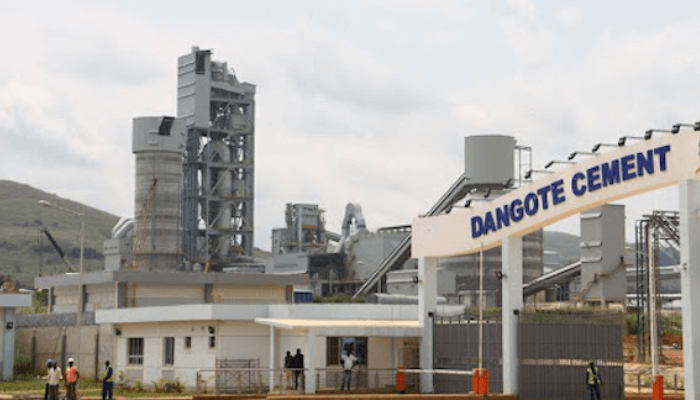Court Grants EFCC Interim Forfeiture of 73 Assets Linked to Cybercrime, Money Laundering
Dangote Cement to Deploy 1,500 CNG Trucks in Nigeria for Cleaner Energy

Dangote Cement Plc is set to introduce 1,500 Compressed Natural Gas (CNG) delivery trucks into its Nigerian operations, aiming to promote cleaner energy usage in the country.
Arvind Pathak, Group Managing Director of Dangote Cement, announced this initiative during the company’s virtual conference call with investors and analysts.
“We are acquiring 1,500 CNG trucks and plan to gradually replace our older diesel-powered fleet with these 100 percent CNG trucks,” Pathak stated.
Pathak highlighted that the transition from diesel to CNG trucks began four years ago. “Initially, we used dual-fired engines, running on both CNG and diesel. We currently have about 1,400 trucks from that period.”
In the first half of 2024 alone, the company has added 300 CNG-powered trucks to its fleet, as reported in its unaudited financial results.
At Dangote Cement’s 15th Annual General Meeting (AGM) in Lagos two months ago, Chairman Aliko Dangote emphasized the company’s commitment to converting thousands of delivery trucks to CNG by 2025.
Dangote stated that this move supports the Federal Government’s efforts to reduce reliance on fossil fuels, thereby enhancing national energy independence and security.
“We are transitioning to CNG vehicles in line with the Federal Government’s new policy under the Renewed Hope Agenda, launched by President Bola Tinubu. By the end of next year, all our trucks will run on CNG. This is a significant investment, but we are committed to it for the benefit of our shareholders,” he said.
In April, President Tinubu mandated the procurement of CNG-powered vehicles for all government ministries, departments, and agencies, reinforcing his commitment to energy security and reducing fuel costs.
Echoing Dangote’s comments on the shift to CNG, Pathak added, “To counter the inflationary environment, we implemented innovative business strategies that boosted revenues, controlled costs, and protected margins. These strategies included optimizing our fuel mix and transitioning from diesel to full CNG trucks.”






